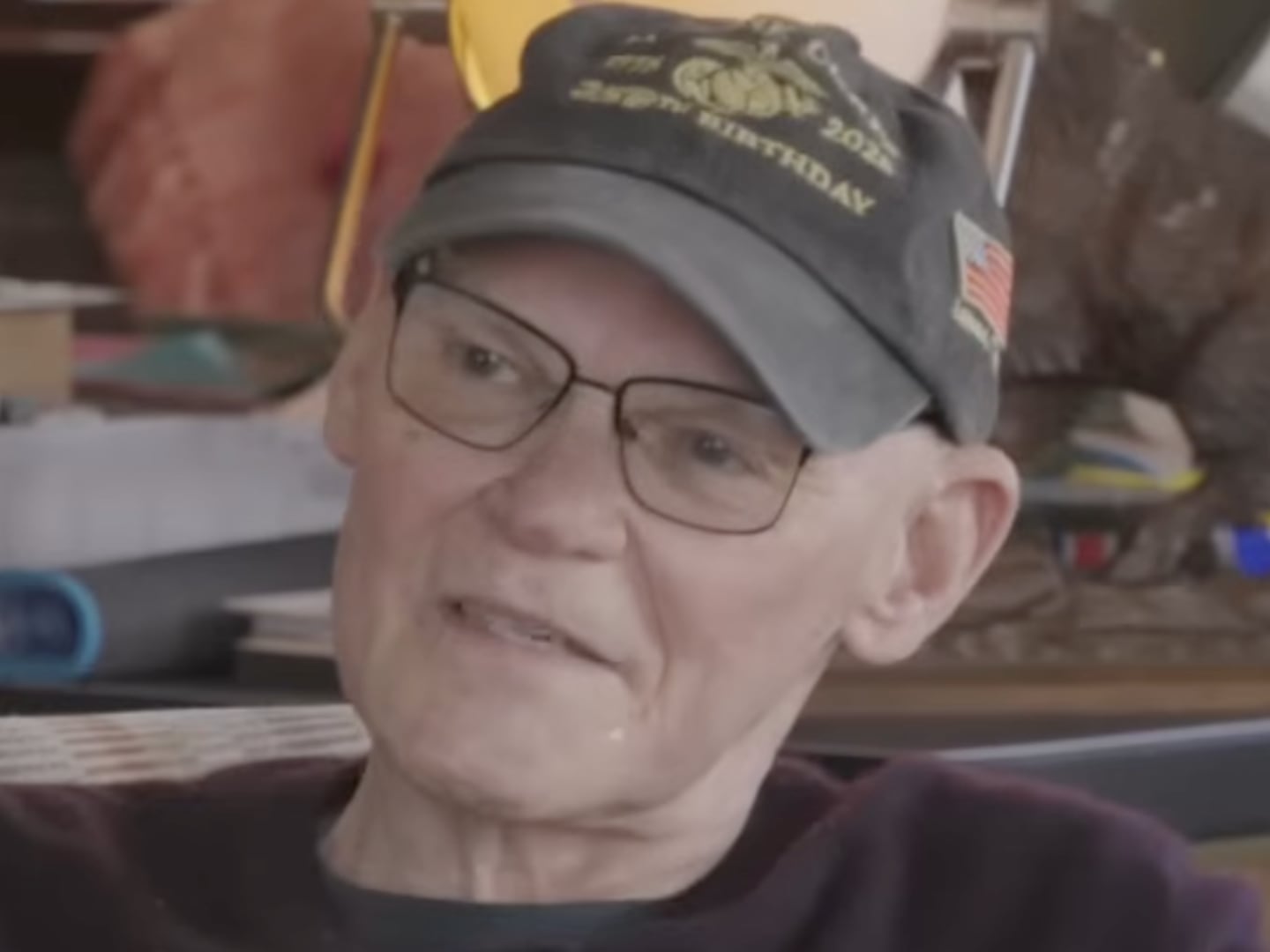DOHUK, Iraq — His heart began beating rapidly and he was short of breath. He’d just seen something on Facebook, a page specializing in news and information from Mosul, his hometown until the so-called Islamic State conquered it in June last year.
The young man, whom we’ll call Hassan to protect the anonymity of his family, spent two days in one of Mosul's prisons soon after the city fell to ISIS, as the extremist group commonly is known. Hassan’s father was jailed as well, and after they were released Hassan fled the city. But his father stayed. For the past 13 months, Hassan has been desperately hoping for news of his parent.
Now, on Facebook, he learned that ISIS has published a list of over 2,000 names identifying people it has executed.
Locals in Mosul are punished for everything from smoking to watching football games to adultery with sentences that include lashings, stonings and death. And Hassan, who had heard conflicting reports about his father, hoped that he might still be alive. But he also suspected he might have been murdered by the extremists, whose notions of justice date back to medieval times. The list could be his family’s chance to find out for sure.
In Mosul there are literally thousands of missing persons, most of them thought to be arrested and in prisons run by ISIS. Nobody outside the group has known their fate, whether they are alive or dead—and this is the first time that ISIS has published one of these grim rosters.
The “death list,” as locals have called it, contained 2,070 names. Copies of it were hung on the walls of what ISIS calls its Islamic Police Stations.
As word of the lists spread, local people rushed to the walls to scan the names for information about their missing relatives and friends.
Omar Jirjis, as we’ll call him, lives near the ISIS-run police station in the Somar neighborhood in eastern Mosul and he told us what he saw. “Dozens of people came to the center to search for the names of sons, brothers, husbands and other relatives. Many of them had pale faces. Many left the center with tears in their eyes and many of the women who left began crying loudly and beating themselves.”
As the people came near the walls where the death lists were hanging, members of the ISIS police force checked their identities and temporarily confiscated their phones and cameras. They wouldn't allow anyone to take pictures of the lists—presumably so family members would have to come to check the lists in person.
“Members of the group were heavily armed and they were watching the reactions of the people closely,” Jirjis says. “This meant that anyone who did see the name of a loved one on the list couldn’t even complain or curse those who had murdered them—because they knew that the ISIS members wouldn't hesitate to kill anyone who curses the organization’s name or objects to its verdicts.”
“I saw a man putting his hand over the mouth of one of the women who came—she was wearing a niqab [covering her entire face]—to prevent her from saying a word,” Jirjis continues. “When she left she got into a car. He closed the doors and the woman started to scream and cry and beat her face. But I couldn’t hear a word she said.”
All of the names on the list were prosecuted and arrested by ISIS on different dates during the past year, although most of them seem to have been detained during the first four months of ISIS control in the city.
The victims on the lists come from all sectors of Mosul's society and include both men and women. Many or most of them seem to have been acting in some official capacity at some time: members of the army or police, politicians or political candidates, members of local or provincial authorities and councils, civil servants, journalists, and a number of moderate clerics who were opposed to the extremist ideology of ISIS.
While the number of names—2,070—can explain the growing number of orphans in Mosul, there are no graves. Most of the corpses were disposed of in a sort of sinkhole and cavern south of the city called Al Khafsa. Other bodies were burned and still others were executed by explosion or other means that didn't leave any remains.
The death lists have brought closure for some Mosul locals. For months now Abu Samir, a local resident, has been hoping to see his only son again after the young man’s arrest by ISIS on suspicion of being a member of a group opposed to ISIS. Abu Samir told us he used to go to one of the members of ISIS and ask about his son. The man always told him that his son was still alive and in good health.
But his son's name was on the death lists.
After reading this, Abu Samir went to the fighter who used to tell him his son was alive; he was crying and asked the fighter why he had lied.
“Do you think the Islamic State has hotels to accommodate the apostate?” the ISIS fighter scoffed.
But not everyone is certain about the fate of the disappeared relatives yet. The death lists do not contain all of the names of all ISIS victims—mostly the lists held names of detainees whose fate was unknown until then. And there are rumors about another list, with another 570 names on it, this time of individuals executed during the past four months.
One doctor, who recently managed to escape Mosul, told us that the morgues in Mosul's hospitals are still full of bodies of those more recently executed by the extremists.
“There are usually two or three bodies in storage where only one body is meant to be stored,” the doctor explained.
ISIS stopped using the Al Khafsa hole for the disposal of bodies at the beginning of 2015. But there are still many locals who have disappeared and whose names were not on the death list. Which is why unhappy locals believe that ISIS will publish more lists, one after the other, because there is no hope that the group will be expelled from the city anytime soon.
Hassan, who is now living in relative safety in the Dohuk area, which is controlled by the Iraqi Kurdish military, was still desperate to find out if his father’s name was on the list. But none of his relatives still living in Mosul would dare to look at the lists. They were afraid they would be arrested too. So the family asked a more distant relative to go and check the death list for them.
Hassan’s family waited for three days, Hassan told us. “This man started to lie to us. He told us he couldn’t go and check the list. On the second day he said he was sick. But finally he told us: Our father’s name was on the list.”
Hassan and his brothers have accepted the inevitable. They recently held a funeral in Dohuk—even though they were unable to accord their father’s body the respect they knew he deserved.
This story is adapted from the original appearing in Niqash.org, a publication of the German nonprofit organization MICT —Media in Cooperation and Transition, committed to the development of media projects in the Middle East and North Africa.






